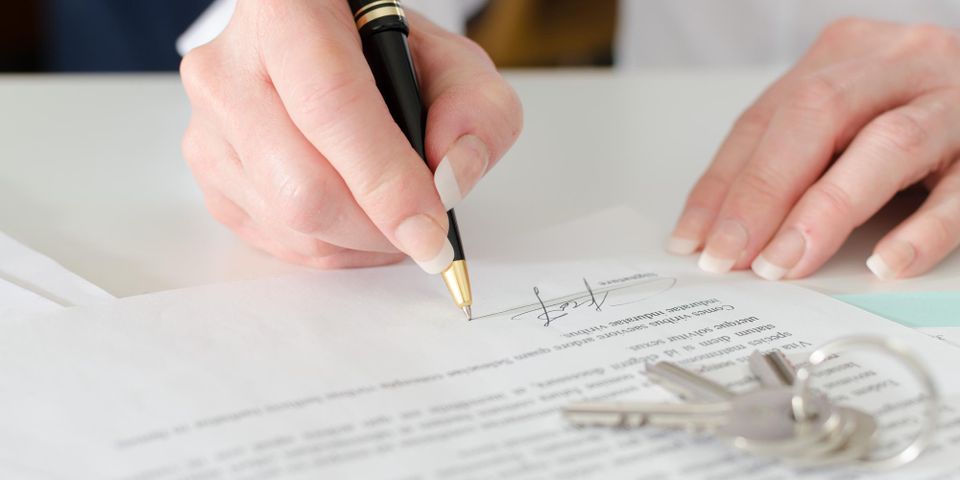
From price to the location and size, there are many important factors to consider when you’re looking for a house or apartment to rent. Even when you find a place that checks all your boxes, you’ll want to pay close attention to the leasing terms to determine if it’s genuinely as good as it looks. To help you avoid an uncomfortable living situation and the possible need for real estate litigation, here are a few signs that a lease agreement isn’t worth signing.
5 Warning Signs of a Bad Lease Agreement
1. No Access to Property or Landlord
While many rentals are found online, you should never agree to anything before actually touring the property. If the landlord is unable to grant you access to the property before signing, there may be severe problems hidden inside. You should also be wary of landlords or property managers that operate from foreign countries or long distances, as they may not be able to provide the support you need if any issues arise.
2. High Late Fees
It’s typical for lease agreements to attach penalties to late rent after a specific grace period. While Alabama state law does not regulate these terms, most landlords will apply a 5% late fee if the rent is three or more days past due. If your lease terms go above these percentages, you could end up paying more than what is reasonable.
3. Unrestricted Right of Entry
 In most cases, landlords should provide you with 24-hour notice before entering the property. However, specific emergencies—such as plumbing leaks—may require them to begin right away without your permission. While this right of entry is typical, it must be clearly defined in a lease agreement. If your lease says that the landlord has unrestricted access, your privacy, comfort, and safety might be at risk.
In most cases, landlords should provide you with 24-hour notice before entering the property. However, specific emergencies—such as plumbing leaks—may require them to begin right away without your permission. While this right of entry is typical, it must be clearly defined in a lease agreement. If your lease says that the landlord has unrestricted access, your privacy, comfort, and safety might be at risk.
4. Pending Foreclosures
Dishonest landlords will sometimes rent properties that are under foreclosure. When this happens, the tenant can eventually be removed by law enforcement and end up surrendering their deposit to the landlord. To avoid this pitfall, check the public records for the county you’re renting in to see if a “lis pendens”—or pending real estate litigation—is associated with the owner or the property.
5. Insufficient Repair Responsibility
The landlord should regularly provide general upkeep and emergency repair services, that are not a result of your irresponsibility, within a specific amount of time. If a lease states that you are responsible for repairs or waive certain matters—such as electrical work or mold remediation—you may end up living in subpar conditions without sufficient recourse.
If you have concerns about a lease agreement in or around Baldwin County, Craven & Perry, PLLC. can provide the real estate litigation support you need. With a thorough understanding of rental and property laws, this Gulf Shores, AL attorney can help owners craft dependable leases and assist tenants with violations. To learn more about the construction and real estate litigation services that this lawyer offers, visit his website or call (251) 968-8170.
About the Business
Have a question? Ask the experts!
Send your question

